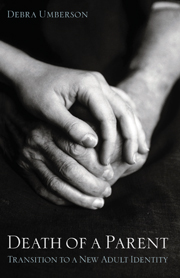Book contents
3 - SYMBOLIC LOSS
Published online by Cambridge University Press: 30 July 2009
Summary
My father was probably the greatest single influence on me ever — of anybody. He was a role model, an adviser, an … emotional anchor.
TOM, AGE FORTY-FOURDaddy, I have had to kill you.
You died before I had time —
Marble-heavy, a bag full of God,
Ghastly statue with one gray toe
Big as a Frisco seal
FROM THE POEM, DADDY, BY SYLVIA PLATHWhen a mother or father dies, an adult loses not only their parent, but also the abstract meanings associated with that parent. A mother or father may symbolize an all-powerful figure: the person who shaped the child's personality, the arbiter of rewards and punishments, and a key person for the child to emulate, to please, and to displease. This symbolic figure is both the elderly parent who dies and the many other versions of the parent that the bereaved individual has known from infancy to adulthood. When a parent dies, the adult loses a connection to the past that dates to the beginning of life. The parent's death also portends one's own mortality in a way that no other death can; in essence, the adult child joins the next generation in line for death.
A lifetime of interactions between a parent and child imbues their relationship with unique meaning.
- Type
- Chapter
- Information
- Death of a ParentTransition to a New Adult Identity, pp. 49 - 78Publisher: Cambridge University PressPrint publication year: 2003



